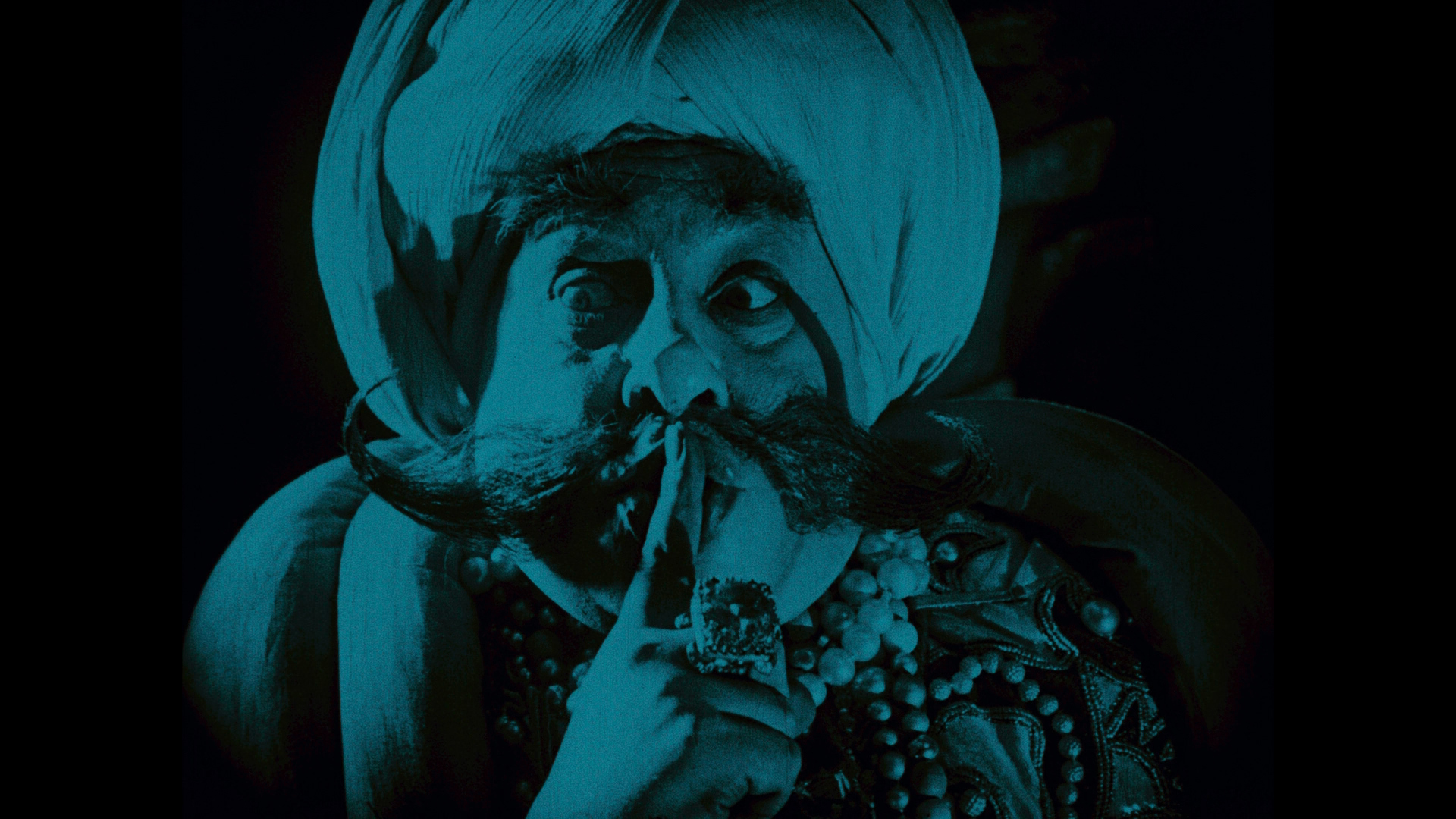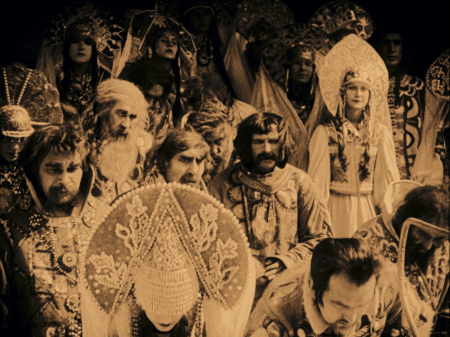
Interestingly, the three stories are not weighted evenly in terms of length – indeed a fourth episode, Rinaldo Rinaldini was never shot, due to budget issues, although the figure is clearly visible in the attraction’s line-up – nor are the episodes stylistically similar beyond some expressionist features. In the film’s frame story the attraction’s owner hires a young journalist to create stories for his wax figures, which in their cinematic incarnation are played by Emil Jannings, Conrad Veidt, and Werner Krauss, respectively, the three most famous actors of the era, while a young William Dieterle impersonates the writer. Waxworks relates the stories of three historical figures, depicted in a fairground wax museum, Haroun al Rashied, the Caliph of Bagdad, Ivan the Terrible, and Jack the Ripper. Not surprisingly, Waxworks opens, like Caligari, on a fairground, a place of wonder in German cinema, as well as the first home of cinema. Interestingly, Waxworks, as the last pure expressionist film, is also the first to highlight expressionist lighting, as it would be inherited by American film noir, thanks in no small part to Jewish émigrés from Berlin.

Waxworks is considered by film historians to be a “pure” Expressionist film, like The Cabinet of Caligari and Genuine (1920) , all films defined by their expressionist décor, visual design, and acting style, in contradistinction to more realistic Weimar era films, like The Last Laugh (1925) and Metropolis (1927), which have been said to display expressionist lighting and camera angles. Conrad Veidt, Werner Krauss in Waxworks (1924, Paul Leni) Seeing Waxworks in this new digital version revealed many visual details previously hidden in the patina of the emulsion, but digitality has its own pitfalls.

I had previously seen a number of different 35mm prints while researching the German-Jewish photographer/cameraman, Helmar Lerski, but all of them originating from the nitrate master positive at the British Film Institute. This new digital restoration, carried out by the Deutsche Kinemathek, Berlin and the Cineteca di Bologna, offers a completely new visual experience. Restoration of Paul Leni’s Waxworks (1924)Ī courageous little distributor of classic and silent films, Flicker Alley has just released a blu-ray-DVD dual-format edition of Paul Leni’s canonical Das Wachsfigurenkabinett / Waxworks (1924), directed by Paul Leni.


 0 kommentar(er)
0 kommentar(er)
